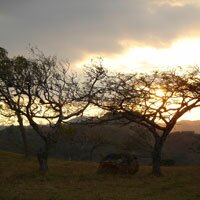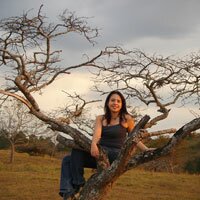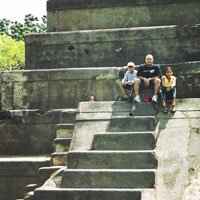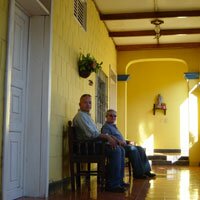



Myths and legends have always attracted the attention of different peoples with their mysticism and mystery. El Salvador is no exception. Below are the most famous legends of El Salvador. If you are interested in the legends of other cultures of the world, contact https://essayelites.com/ elite writing service.
This is a Salvadoran legend or myth of an apparition of a woman with black-gray hair, thin white arms, long slender fingers with nails bright and sharp. Legend has it that the Siguamonta appears at night to single men living with their unmarried women. To children and old men if do not wear crosses or blessed scapulars.
To prevent that this spirit from haunting, it is people are told to carry a red cloth in their left pocket. To place in the straw hat a cross or yell at her “Mary, take your chicken leg” or “Comadre here is is your cigar. ”
Cipitillo is the son of Siguanaba and well known character in Salvadoran legends. He is a Cipote or kid of approximate of 7 years of age. He is short, of white skin with a big belly and wears a huge straw hat over his head. When he appears at night, he is characterize as a trickster, laughing a lot, dancing around his victims. After he disappears all is left are traces of his tiny feet.
Indigenous CultureOne of the best treasures of El Salvador is its people. The charm of its people has earned the name "The Land of Smiles" ("El pais de las sonrisas"). More than six million inhabitants, 90% mestizo, 5% of Indians and the other 5% of European descent inhabit the country. El Salvador observed a rich past of indigenous cultures that are reflected in the dances, stories and customs of the product mix of Amerindian and Spanish culture Salvadoran customs and traditions allow us to know their culture and discover the national soul that shines through the desires and hopes, joys and sorrows, fears and struggles, fighting instincts and religious sentiments expressed in them. In this section we present customs, traditional festivals, local foods, traditional dancing and typical characters and legends. El Salvador’s most notable dish is the pupusa. Pupusas are a thick hand-made corn tortilla (made using masa de maíz or masa de arroz, a maize or rice flour dough) stuffed with one or more of the following: cheese (usually a soft Salvadoran cheese, a popular example is Queso con loroco), chicharrón, and refried beans. Loroco is a vine flower bud native to Central America. There are also vegetarian options, often with ayote (a type of squash) or garlic. Some adventurous restaurants even offer pupusas stuffed with shrimp or spinach. Pupusa comes from the pipil-nahuatl word, pupushahua. The pupusa’s exact origins are debated, although its presence in El Salvador is known to predate the arrival of Spaniards. Two other typical Salvadoran dishes are yuca frita and panes rellenos. Panes con Pavo (turkey sandwiches) are warm turkey submarines. The turkey is marinated and then roasted with Pipil spices. This sandwich is traditionally served with turkey, tomato, and watercress along with cucumber, onion, lettuce, mayonnaise, and mustard. A drink that Salvadorians love is chuco, usually made out of purple corn. Chuco is made by soaking purple corn in water, then blending it and cooking the corn over a medium fire. The thickened drink is called chuco. Toasted pumpkin seeds and boiled beans are added to the drink. Typical characters and legends
|
The mission of CEA is to increase awareness of Salvadoran Culture & History within our local & international community. CEA will accomplish the awareness by providing Cultural & Educational services in our communities, both local and international.